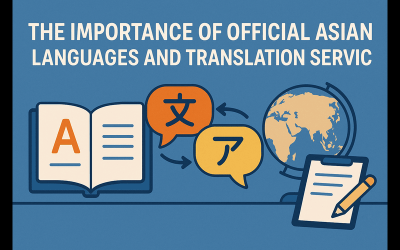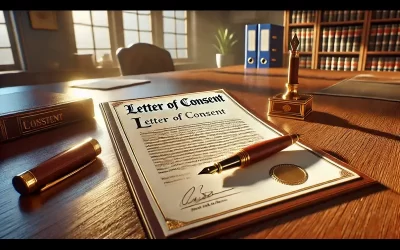If you’re preparing for a big move, a new job, or even a wedding abroad, you may have come across the term “Apostille Stamp.” This stamp, small but mighty, can make or break your plans if you’re dealing with important paperwork that needs to be accepted overseas. In many cases, pairing the Apostille Stamp with a professional translation service ensures your document is both certified and accurately understood by foreign authorities. Think of it as the stamp of approval that says, “This document is legit, even across borders.” Let’s dive into the Apostille Stamp, why it matters, and how to get it done right.
What Exactly Is an Apostille Stamp?
In a nutshell, the Apostille is a certificate. It verifies that a document issued in one country can be trusted in another. This stamp comes with an official seal and unique reference number, making it hard to duplicate. It’s a certification that’s widely recognized, thanks to the Hague Apostille Convention, an international treaty signed by over 120 countries.
So, why bother with an Apostille Stamp? Simply put, it makes your document universal. Without it, your paperwork might face rejection by foreign authorities, leaving you stuck. The Apostille is here to save you from that headache.
Why Do You Need an Apostille Stamp?
Imagine this: You’ve landed a great job overseas. You show up with your university degree and work certificates, ready to go, only to find out they’re not valid in that country. That’s where the Apostille comes in. It guarantees that your documents are genuine and accepted, no matter where you go.
People usually need an Apostille for documents like birth certificates, marriage licenses, academic records, or court papers. Businesses also rely on it for contracts and corporate documents. Having an Apostille Stamp on your document means it’s cleared for international use, saving you the frustration of doing everything all over again.
Certified Translation Services
Get your documents translated and certified by a professional translator in 120+ languages with 24 hour delivery.
Get a Quote
The Countries That Recognize the Apostille
The Apostille Stamp is recognized by all countries that are part of the Hague Apostille Convention. This includes many European countries, the United States, Australia, Japan, and much of Latin America. In these countries, an Apostille Stamp is the golden key to recognition.
However, not every country is on the list. If your destination country isn’t part of the Hague Convention, your document might require additional steps like “legalization.” Always double-check if your destination country accepts the Apostille, so you don’t find yourself back at square one.
How to Get an Apostille Stamp on Your Document
Getting an Apostille Stamp isn’t as complicated as it might sound. Here’s a step-by-step look at how to go about it:
- Determine if Your Document Qualifies: Only public documents—such as birth certificates, marriage certificates, and academic transcripts—can be Apostilled.
- Visit the Right Office: Depending on your country, you’ll need to go to a designated office. In the U.S., this is often the Secretary of State’s office; in other countries, it could be the Ministry of Foreign Affairs.
- Submit Your Document: Once you’re there, submit your document and any other required paperwork. They may ask for identification or a notarized copy.
- Pay the Fee: Be prepared to pay a fee for the Apostille Stamp. Each document usually has a set fee.
- Receive Your Apostille Stamp: After processing, you’ll get your document back with the Apostille Stamp attached, making it ready for international use.
This process varies by country, so check the exact requirements for your location. If you’re unsure, contacting a service provider who specializes in Apostille processing can help.
What Types of Documents Need That?
Not every document needs an Apostille Stamp. Generally, only official documents issued by a public authority qualify. This includes records like:
- Birth and marriage certificates
- Divorce decrees
- Academic diplomas and transcripts
- Legal contracts and corporate documents
If you have a private document, like a business contract, you might need it notarized first. A bit of preparation upfront can save you from a lot of extra hassle down the road.
Apostille vs. Notarization: The Big Difference
Many people confuse the Apostille with notarization, but they serve different purposes. Notarization is about confirming signatures, ensuring the person signing is who they claim to be. On the other hand, an Apostille Stamp certifies the document’s authenticity for use abroad.
Think of notarization as a signature check, while the Apostille is a full green light for international use. If your document is going overseas, the Apostille is the way to go.
Apostille Translation
What is an apostille and why would you need to translate it? Protranslate is here to answer all your questions and offer you apostille translation services.
Get a Quote
Common Mistakes When Applying for an Apostille Stamp
If it’s your first time, getting an Apostille Stamp can be confusing. Here are a few common mistakes to avoid:
- Going to the Wrong Office: Double-check the correct office before you go. This can save you time and prevent delays.
- Submitting the Wrong Document: Some documents need to be notarized before they can be Apostilled. Make sure you have the correct version.
- Ignoring Processing Times: Apostille services can take time. Plan ahead if you have a deadline.
- Overlooking Fees: Apostille usually is not free. Have a budget in mind so you aren’t caught off guard.
Avoiding these pitfalls can make the Apostille process much smoother. A bit of planning can go a long way.
What Does It Cost to Get an Apostille Stamp?
The Apostille Stamp usually comes with a fee, which varies based on your country and the type of document. In some places, fees range from $10 to $50 per document, while others may charge more.
Third-party services can handle the process for you, but they’ll likely add an extra fee. Weigh the costs and benefits: if time is tight, a service provider might be worth the added cost.
Apostille Services: Should You Use One?
If you’re short on time or dealing with complicated documents, using an Apostille service might be your best bet. These providers handle the process from start to finish, ensuring you have everything you need for certification. They can also expedite the process if you’re in a hurry.
But if you’re confident and have time, going the DIY route can work just as well. It all depends on your priorities and how quickly you need the Apostille Stamp.
When You’re Working Against the Clock
Sometimes, there’s no time to spare. Perhaps your job abroad starts soon, or you need a document for a family emergency. Many Apostille offices and private providers offer expedited services. When speed is essential, make sure you communicate this to the service provider or office staff. A little extra cost for expedited service can be well worth it.
Apostille: The Final Word on Document Authentication
The Apostille Stamp is a must-have for anyone needing official documents recognized abroad. Whether it’s a marriage license, a business contract, or an academic record, this small stamp opens the door to international acceptance.
So, if you’re headed abroad or dealing with foreign authorities, make sure your documents are stamped and ready. A little bit of preparation with an Apostille Stamp can save you from countless obstacles.
 Rana Maalouf
Rana Maalouf

